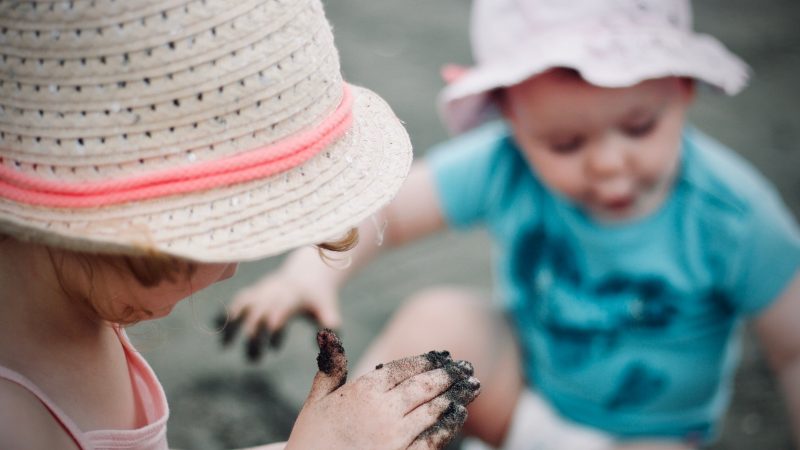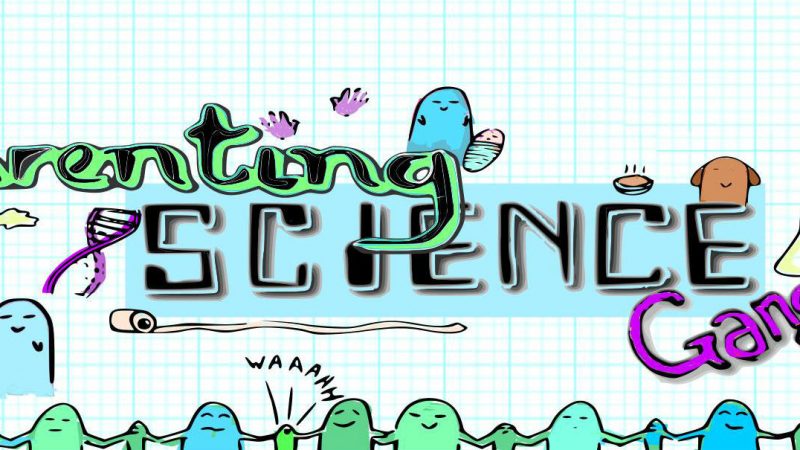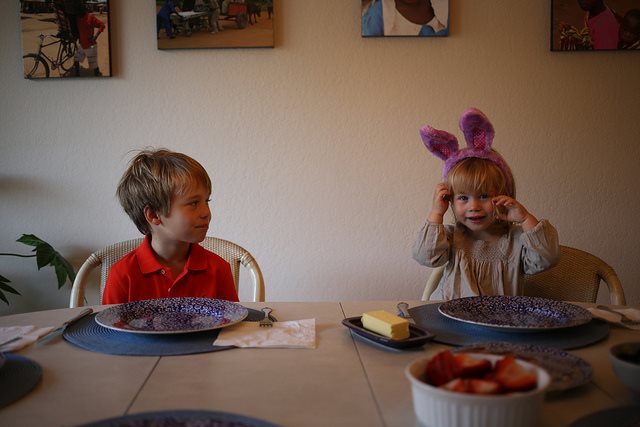
Learning in the Woods – a Forest Schools Q&A with Sara Knight
Over all the Parenting Science Gangs, forest schools are extremely popular with the majority of members saying that they either attended or would like to attend one with their children. So we were delighted to be able to speak to Sara Knight, who is quite possibly, the UK’s top academic when it comes to Forest School.
Photo by Jelleke Vanooteghem on Unsplash
A very warm welcome to Sara whose name will be familiar to anyone who has ever done any reading into forest schools! Welcome Sara, we are really excited to have you with us. For those of us who are new to the subject, would you introduce yourself briefly?
Sara: I am responsible for introducing Forest School to the east of England, for writing most of the text books and for being one of those who got the Forest School Association started.
Forest School is a way of working outside, and not just with children, although it started as a nursery-aged exercise.
PSG B: You’ll be happy to know our Local Authority Ed Psych recommend Forest Schooling to me today!!! (Although I’ve yet to find one that caters for his age group)
Sara: A lot of good work is done with children and adults with learning difficulties and with all ages with mental health issues.
PSG B: That’s my sort of field/interest.
Sara: Have you tried looking for a provider via the Forest School Association (FSA) website?
PSG B: Ooh no I haven’t. I shall google that as soon as we are finished. I’m only really aware of two locally, but probably as I’ve never looked before!
Sara: I do cover the full scope in my latest book, Forest School in Practice.
In Scotland and Wales the Forestry Commission is still supporting Forest School and the wider field of Nature Pedagogy. There are now several nurseries across the whole of the UK where children spend most of their time outside.
In China, Japan and South Korea they are introducing Forest School into kindergartens to build emotional resilience so that children can cope with the pressured schooling there
PSG C: How interesting that they think that the best plan is to add in another layer of interventions to deal with the pressure rather than tackling the pressure itself! I wonder if that’s because pressure itself is valued?
Sara: Yes, I suspect that is the case
PSG D: Hi, I first heard about Forest School at an LGBT parents group. My baby is only little but we’ve picked her a nursery that does Forest School activities with the older children. I’m really interested in learning more about it.
Sara: See if your nursery Forest School leaders are members of the Forest School Association. It isn’t essential, but it does help ensure they are setting about it in the right way
PSG D: Thanks, I hadn’t really thought about checking into how they were going about things.
Sara: Another check is on how messy the children get. The messier the better!
PSG B: Yes – definitely check as I’ve come across at least one provider that pretends such things but it isn’t actually what they are about.
PSG C: Could you tell us a bit about what “the right way” is, and what sort of pitfalls inexperienced leaders fall into?
Sara: Teachers find it really hard to sit on their hands and listen.
PSG N: Is there one bit of research that you think is key to understanding the value of Forest School? Or if not, what for you has been the most valuable piece of research?
Sara: The Forestry Commission sponsored most of the early research, by Murray and O’Brien. I have enjoyed the challenges thrown at me by Mark Leather, who has critiqued the lack of rigour in most of the research. Good From Woods was a useful project from the Silva Foundation that offers practitioners a way of capturing data… I could go on!
PSG C: If you had a magic wand and infinite money, what research would you like to see done?
Sara: A longitudinal comparative study similar to that done by Wykert on High Scope!
They compared free play nurseries with structured free play (i.e. where the children chose the activities but had to plan what they would do and reflect on it afterwards), and a very formal nursery setting. Immediately after it was the formally trained kids who did best but when they looked at outcomes when the children had become teenagers and adults it was those in the middle group who had the most impressive outcomes, the feeling being that they had learned to self-manage. That is a very brief summary.
PSG C: Do you see this sort of variation in how children are encouraged to play in Forest School, or is there a recommended level of structure that most forest schools aim for?
Sara: A good Forest School leader will facilitate what the children are interested in and encourage them to reflect on what they have found/done. This often happens at the end of a session around the campfire/log circle. The leader will then know what s/he has to bring to the next session and whether there are any children who want to learn any particular skills, such as knife use or fire lighting.
PSG C: Is there any research into the effects of Forest School on children’s attitude towards mainstream schooling? If so, what did they find?
Sara: Not specifically, but most of the extant research indicates that children do better after Forest School sessions – they learn the skills that are associated with Guy Claxton’s work on predispositions to learning such as resilience, reciprocity, and there are another two R’s that I can’t remember
PSG C: Resourcefulness and reflectiveness. Guy Claxton is one of my heros!
Sara: The first headteacher I worked with had worked with him and spotted the link between the two approaches. You can read more about Guy’s work here: http://www.tloltd.co.uk/building-learning-power/how-its-done/
PSG C: Do Forest School leaders have these ideas in mind when they set up activities, or are they skills that are naturally built when children are supported in approaching a situation? I guess what I am wondering is how leaders select their activities – do they aim for a flexible timetable of activities that they know will cover a “curriculum” of skills? Or is it more organic than that?
Sara: This is tricky. Being child-led means following the children’s lead, obviously. Claire Warden recommends interrogating the sessions and identifying where the children are leading in order to identify how best to maximise the learning potential of their ideas and interests. That is certainly what I try to do. It is hard work but amazingly effective!
PSG H: How do you measure the effect?
Sara: Norfolk Early Years team did a project a few years back where they had a group of 8yr old boys whose writing was below par. They measured their levels before and after a six week block of Forest School and found they had improved significantly
PSG C: Did they hazard a guess as to what aspect of Forest School had made the difference?
Sara: The excitement of discovery (and what they discovered varied from child to child), encouraged them to want to communicate their findings. They took pictures and did displays and books back in the classroom – not under pressure to do it but because they wanted to tell others about it.
PSG F: Is there any research about the ‘amount’ of forest schooling which has the best impact (and on what); i.e. does it matter how often children get to ‘do’ forest school?
Sara: The FSA are currently ‘discussing’ this. The consensus seems to be at least every other week across all four seasons.
PSG A: That’s seems quite a small amount?
Sara: That is a minimum for young children who can build their resilience. If you are unpicking issues with older children and adults it takes years.
PSG E: I’m a mum of two girls (three and 17 months) and as a very outdoorsy family really hoped we could get involved with a forest school. Sadly, the one nearest us closed after we had been to just a few sessions with my eldest daughter 🙁
The primary school we are hoping to send her to next year has mentioned they do Forest School activities and have an outdoor classroom but one of the kids on the school tour let it slip they had never had access to any of this. I really want to arm myself with info about the benefits of Forest School and what it entails so I can be that pushy parent next year encouraging them to add it to the curriculum! (and see what I can do to support it)
PSG F: What are the main differences between a forest school and one where kids are just outside a lot?
Sara: All outdoor activities are good. The added benefits of good Forest School is that the children learn to self-manage, to cooperate and to communicate, all essential life skills. As well as caring about nature and the future of the planet!
PSG G: There’s isn’t any Forest School in Dumfries and Galloway that can be classed as full time education, is there?
PSG B: No – they are all part time I believe.
Sara: I don’t know – you could try asking the Forestry Commission or looking in the Forest Schools Association website.
For school-aged children it’s more tricky. There are independent Forest School leaders offering sessions for home-schooled kids in many areas now
PSG B: Ooh that would work for me
PSG I: I’m a secondary school maths teacher and qualified SENDCo. I’ve been taking my children to Forest School type sessions for a while now and we love it. However it’s made me wonder what scope there is for incorporating this into secondary education? Do you know of any relevant literature or examples of where this has taken place? (I’m based in Norwich! ?)
PSG B: Following this as it’s secondary level additional needs for learning that I have an interest in.
Sara: Yes. Lots of pupil referral units use Forest School, most special schools do too. Mainstream opportunities are less frequent – often it is down to the imagination of specific teachers. I do cover it in my book but you might think about visiting Gosfield School in Essex. It is a private school and they have an inspirational Forest School leader who has been spreading the sessions up the school.
PSG I: That sounds great! Thank you! I just worry that we have young people arriving at our school that are used to some sort of outdoor learning, whether that be a Forest School programme at their primary school or from a farming background, and they are then expected to forget/ignore it and focus on a largely indoor curriculum.
PSG J: What do you think is the best approach to take with a council that seems hell bent on closing as many rural schools as possible (including one that does some great outdoor classroom/ Forest School activities) and merging schools (nursery, primary and secondary) into as few sites as possible?
I helped in some outdoor classroom trial sessions with the forestry commission at the school in question around 12 years ago and the current pupils are regularly taken for classes outdoors in the forest setting but also to grow their own fruit, veg and flowers as well as mountain biking and other activities. The council, however, thought that the children’s education would be enhanced by closing the school and merging with another 7 miles away and letting them attend token outdoor sessions a couple of times a term ?
Sara: Ouch. Not sure where you go with that as I am sure the decision was fundamentally financial
PSG B: So many ways I could consider this question after years of battling the LA over education…………
I think the three schools currently at threat here did very well in how they tackled it! I think it may be a while before they try it again!
PSG J: It was absolutely financial but they tried to suggest the small school roll (the village is on the verge of a big turn around in housing stock due to the ageing demographic) meant the children were in some way suffering. I attended the school myself thirty of years ago and I want my daughter to attend as well as I think it is one of the closest things we have to a forest school in this region.
PSG B: I have campaigned in education for around four years now so if you ever need any advice or a sounding board for ideas, just give me a shout.
PSG J: Thankfully we won the fight this time and have a reprieve for 5 years but I firmly believe the council should be embracing the education these schools have to offer, not shutting them down.
PSG K: I’m on a level 3 Forest School course in Edinburgh. Can I ask what you think I should do to set up my own Forest School?
Sara: You should be offered a year’s free membership of the FSA when you have finished training. That will give you time to find the other leaders in your area and to see what jobs are being advertised locally. and in Scotland the Forestry Commission are still helping with Forest School so talk to them.
PSG K: Thank you
PSG L: My local Forest School has a full-time nursery and pre-school and are hoping to open a primary school in a couple of years, although they haven’t yet found another forest primary school from which to get advice. Are there any? We’re in Cambridgeshire. We go to their stay-and-play toddler sessions weekly and would love it if we could send our daughter to their primary school if they can get it up and running.
Sara: I am currently working with Cambridgeshire – the County Council at Shire Hall is being amazingly supportive of Forest School. It is being spearheaded by the early years team but they are trying to get Forest School into every primary and nursery. Do contact them
PSG L: Thank you!
PSG M: Where can we learn more about Forest School and is there a list of them?
Sara: Your first port of call is the Forest School Association website – ask them. Next ask your local Wildlife Trust (England) or Forestry Commission (Scotland and Wales). And read my latest book!
PSG N: Are there studies for the use of Forest School throughout primary education?
I’m an upper KS2 teacher and would love to see forest schools being extended beyond early years and KS1- are there any studies, books or courses for the use of forest schools with older children?
Sara: Yes, Forest School leaders are trained to work with all ages (and do). Which is why I have tried to cover all age ranges in ‘Forest School In Practice’
If this has sparked your interest, you can find out more about Forest School at the Forest School Association website, or check our Sara’s most recent book, Forest School in Practice.
If you are interested in education outside the mainstream classroom, why not check out some of our other Parenting Science Gang expert Q&As:
- What’s the Alternative? with Dr Helen Lees
- Lighting Up Passion with Flexi-learning with Julia Black
- Exploring Flexischooling with the Centre for Personalised Education


